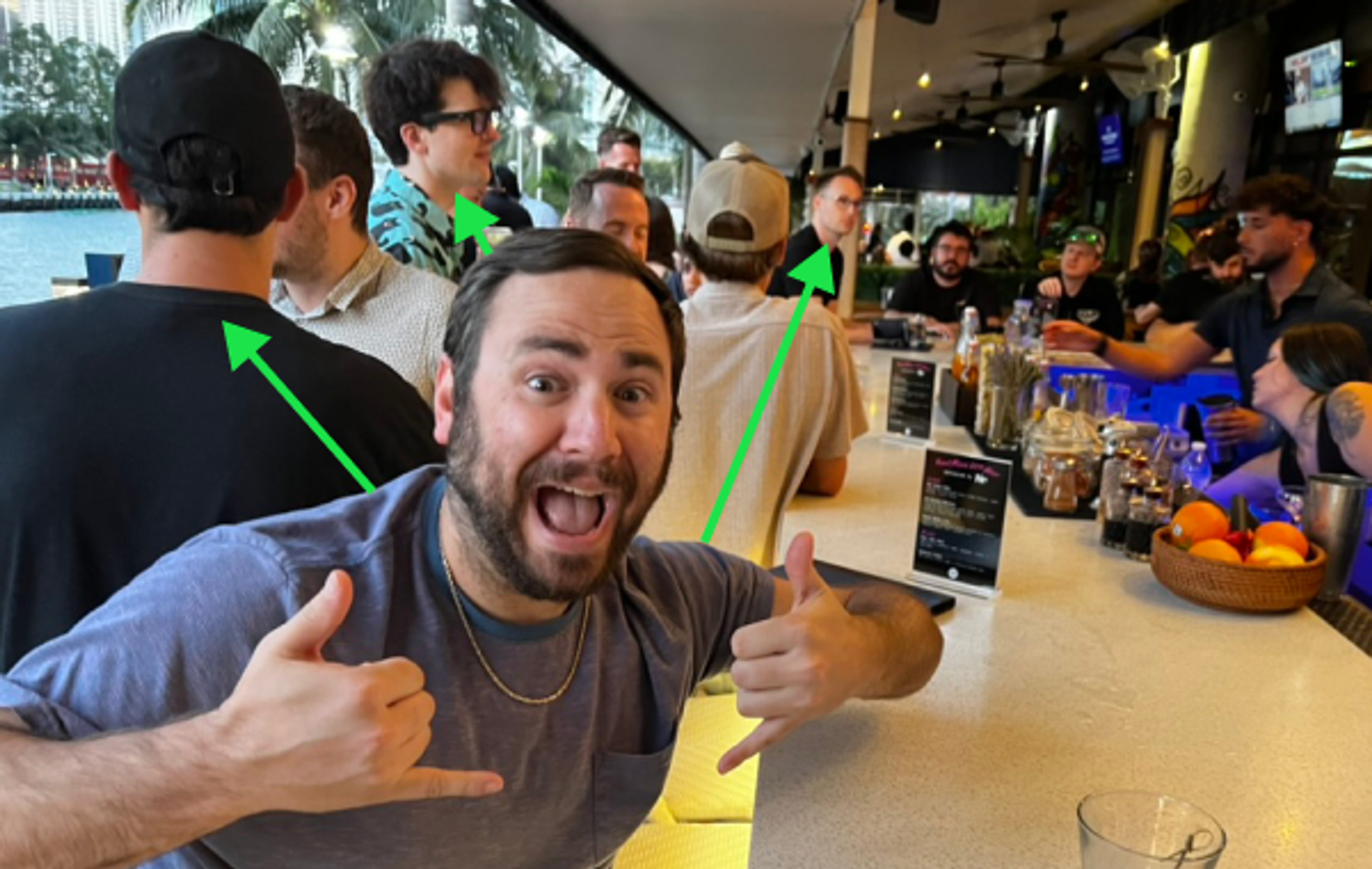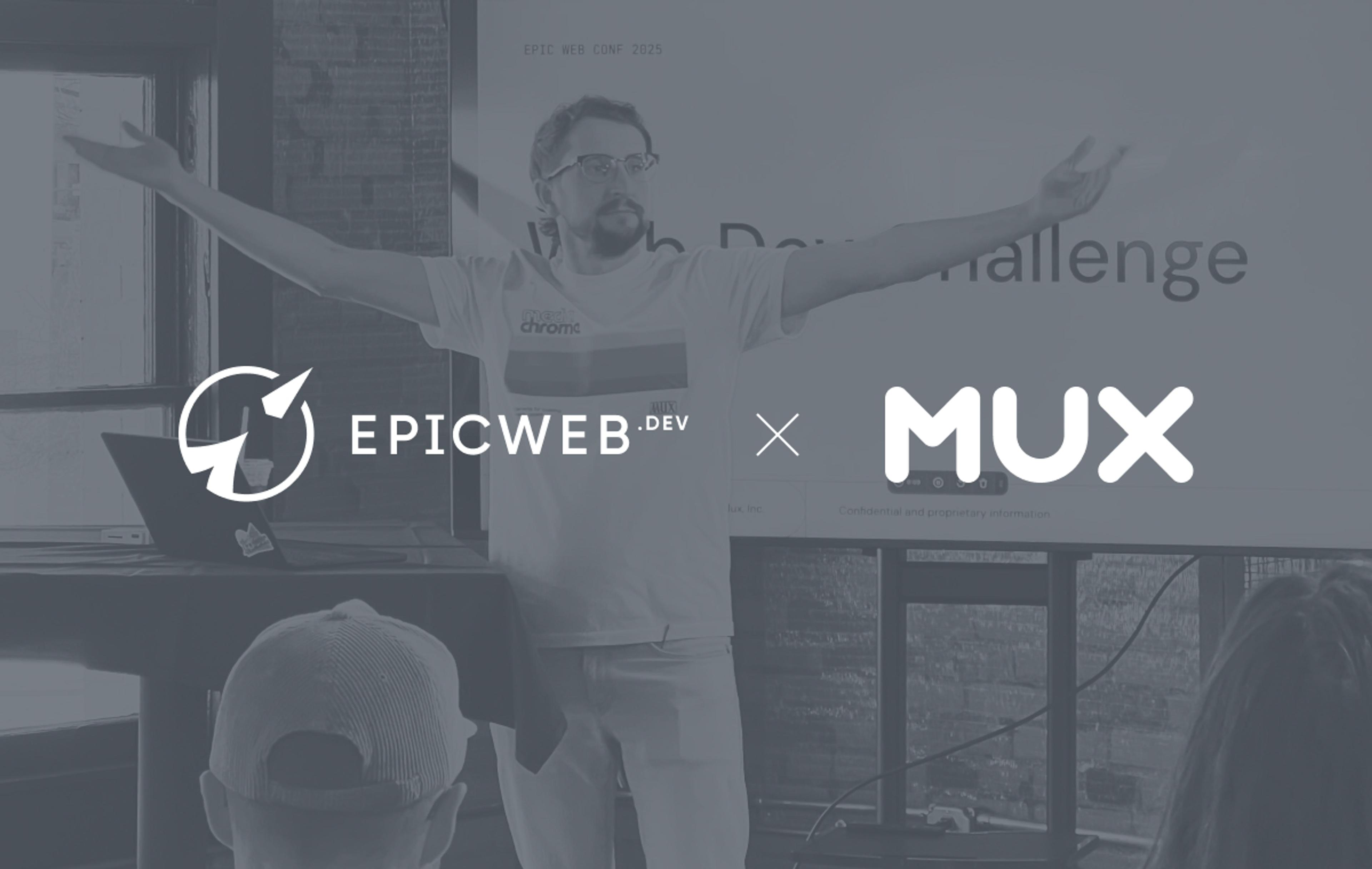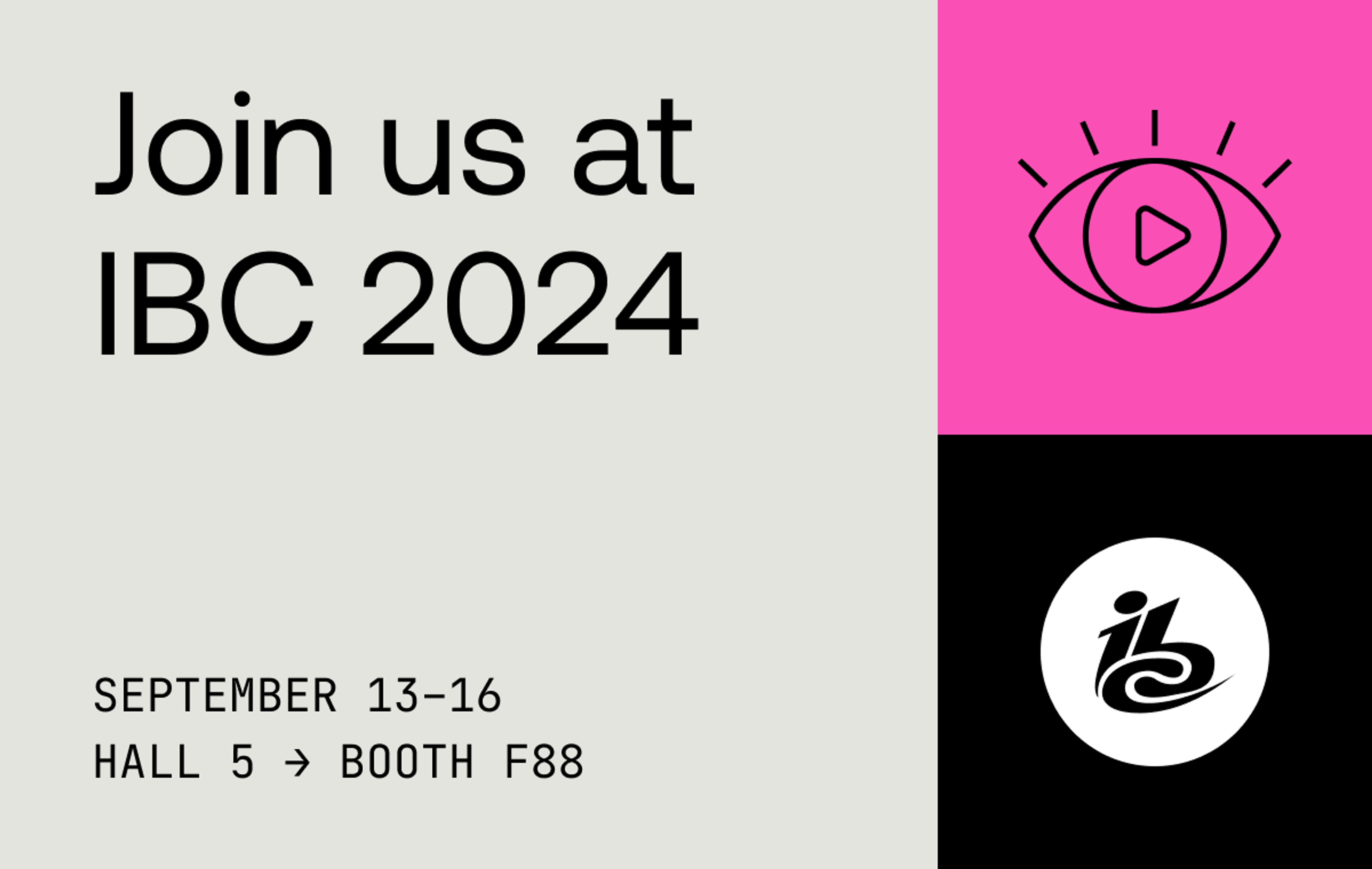I've spent last year traveling the world speaking at and participating in a cacophony of video industry events, but also listening, learning, and trying to keep my finger on the pulse of the streaming industry. In between I’ve been squeezing in a variety of other Mux projects too, including building our OpenAPI based SDKs, helping ship and test our Subtitles and Captions solution, and trying to make sense of the madness that is the mess of Low-Latency HLS specifications.
I've learned a lot from all this travel, but two things have really been reinforced to me. First, just how valuable these events are, and important it is that we keep attending and participating in them. But also secondly, just how critical it is that we actively encourage others too as well.
Why? Simple, these events are an opportunity to learn from each other, not only from your peers in the industry, but also your partners, your competitors, and most importantly, the heavyweights - the big players - the FANGs of the streaming world - the Netflixes, the Amazon Primes, the Twitches, and the Hulus.
Learning the requirements and approaches of the big players is critical to the success of any business in the streaming media space. The realism is that most of your customers are trying to solve the same problems they are, just in a more niche market, so you need to have attractive answers when they ask when they can expect that killer Netflix feature, even if the chance of them becoming the next Netflix is small.
While there's of course huge remit for smaller companies to innovate and build radical new technologies, looking at what the big guys are doing and finding ways to do the same things faster, better, or cheaper than them is a huge avenue for opportunity. These strategies resonate strongly with Mux, and in particular our core value of “Doing a lot with a little”.
While representing Mux at a conference is always a pleasure, it has to make business sense for us to be at events too. However, this isn’t as simple as measuring how many sales leads we generate. As Matt talked about in his great article "Why do we speak":
We’re smart and we build cool shit, both individually and as a team. When we go speak about what we work on we give outsiders a glimpse into what makes us special: us.
We don’t see technical conferences as an opportunity for us to promote our products - that should be an byproduct of us talking about the cool technologies we build and work with, to solve problems in an innovative way.
What have I been talking about?
Like many others who talk on the conference circuit, I started the year with a handful of talks which grew and evolved during my year on the road. Upfront I'd really like to thank everyone who invited me to come to speak last year, and I can't wait to send you all RFPs for the coming 11 months.
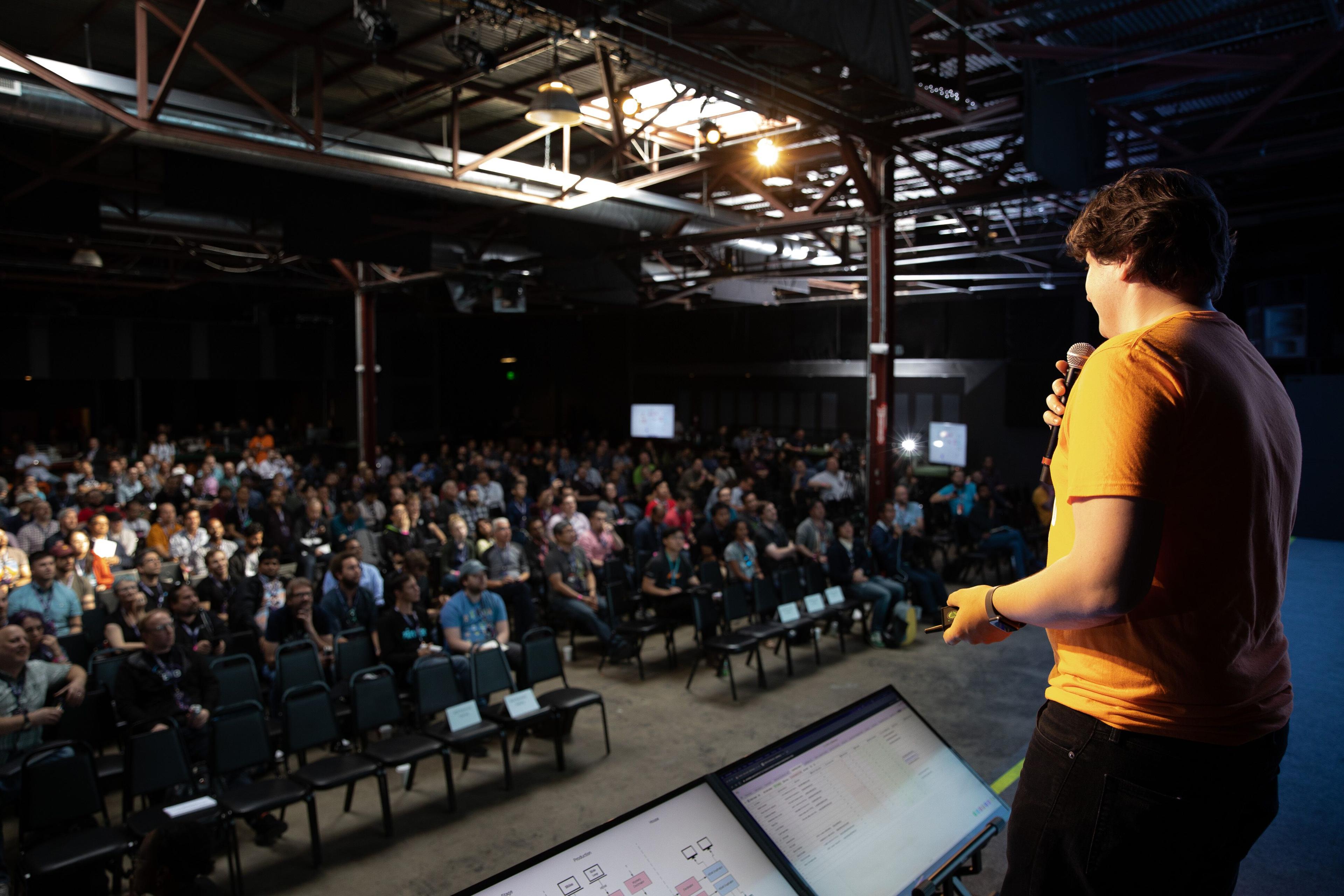
I kicked off 2019 at FOSDEM speaking about an experiment I’ve been working on in my spare time building premium video experiences, using only libre technologies. Eventually this talk became known as “How Libre can you go?”. It evolved over the year as I gave it at FOSDEM, Stockholm, Berlin, and San Francisco Video Tech meetups, into a a final version I gave at Videolan Dev Days, talking in depth about how the industry needs a more open ABR technology, and proposing one, called SASH.
Next, I continued talking about how we’re using Machine Learning to make per-title encoding more accessible to more generalised video use cases, called “Beyond Per-Title Encoding”. I talked about this a few times over the year, including Sydney Video Tech meetup, and at the European Broadcast Union (EBU) Broadthinking event. This talk is fun because it’s a nice mix of things we’re doing now, and things we’re working on to make content and audience optimized encoding even more powerful in the future.
One of the most exciting trips I did last year was out to China for LiveVideoStackCon in Shanghai. You can read more about my experience and learnings from that trip here, but one great things from the trip was the opportunity to write some new content which would become a great talking point through the latter half of the year. At Mux, we’ve worked hard to make our APIs super accessible to every developer, regardless of if they know anything about video. Sometimes it can be easy to forget how hard this can be, and while writing the talk “The Evolution of Video APIs”, was great opportunity to look back at the APIs of the video products that pre-date Mux Video, as well as some of the non-video API products that inspired the Mux Video APIs. This talk also evolved through the year as I presented it at events like Mile High Video. We also took the opportunity to turn this popular talk into a webinar on building APIs that users love, if you’ve got 20 mins to spare, it’s a great watch.
Living Room devices, or OTT devices have long been my biggest personal bugbears over the last 5 years. The long device lifecycle combined with the lack of software updates on the devices that live in peoples homes tends to mean that the availability of modern streaming technologies can be limited. This is never more true than with support for ad insertion. I dug deeply into this topic in my talk “The Future of SSAI on OTT Devices” at Seattle Video Tech meetup, Mile High Video, and Fraunhofer FOKUS MWS. This was a really interesting learning experience for me as this talk evolved through the year, allowing me to research more into upcoming standards in different markets which may improve the situation, including ATSC3 in the USA, and the HbbTV target advertising standard in Europe.
Late in the year, I started talking more about the carcophonopy of low latency live streaming specifications that are flooding our doorstep at conferences like Videolan Dev Days and the Tokyo Video Tech meetup. We’ve been talking about the state of the low latency live streaming landscape on our blog for a long time, including a couple of articles conducting deep analysis into the Apple LL-HLS specification, and others. I you haven’t checked them out yet, be sure to take a look.
Travel and the environment
It’s all very good to talk about all the travel I did last year, but It's important to touch on the environmental impact of this. I'm proud to say that we've carbon offset all my travel from the last year (using the ClimateCare scheme), and we're actively investigating how we can make this more automated and transparent going forward. If you do have any recommendations for this, please do let us know.
We do try hard to make sure that we send local people to events, this helps us limit our unnecessary and most environmentally damaging travel. With me being based in London we also have access to the Eurostar and the European high speed train network, which lets us get around without causing as much environmental damage as we would flying.
What have other people been talking about?
A few topics came up repeatedly last year, here’s some of the underlying themes that we’ve been keeping a close eye on.
As I talked about in my roundup post from Demuxed 2018, AI continued to be one of the hottest topics into 2019. One of the most eye-opening moments for me personally in the last year was the volume and wide range of talks at LiveVideoStackCon focused in the area of ML and AI. I wrote about this and some of the interesting examples in my writeup after the event, but the summary is that China is pouring money into academic institutions in the name of AI/ML/MV research. What’s maybe slightly more interesting (or maybe concerning) is that while most presentations in the West focussed heavily on applications of Machine Learning for building more effective, or cheaper software, while the presentations at LiveVideoStackCon were overwhelmingly focused on Machine Vision.
It’d be hard not to touch on the topics of Machine Learning and AI without at least also mentioning fake video and deep fakes. With the rise of fake video, it’s been great to see companies like Amber Video emerge with solutions to help identify and combat this content. It’s a little surprising that this hasn’t been a hotter topic at conferences this year, but our favorite presentation on the subject is Roderick Hodgson’s talk from Demuxed 2019, we’d strongly recommend watching it if you’re interested in the subject.
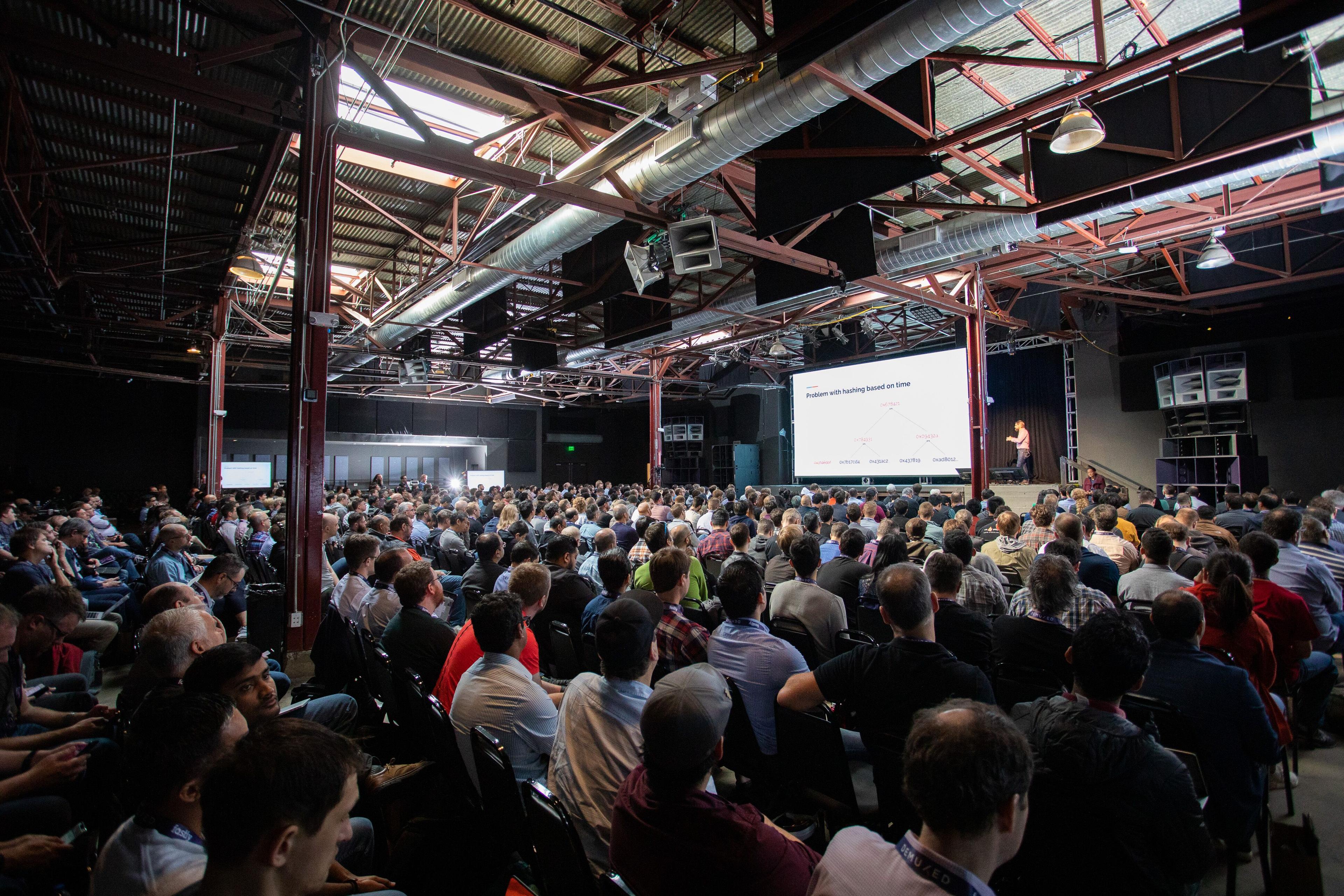
Next up, something that’s been near and dear to my heart since my first live streaming disaster. As the live video streaming industry continues to grow at a phenomenal pace, large scale events are becoming more commonplace, and indeed, it seems that every year we have a new “largest streaming event in the world”. However, while live streaming still only represents a small fraction of the traditional broadcast penetration rates, live streaming at high scale still represents a significant technical challenge if you want great performance and high levels of resilience. This is quickly becoming a more critical problem to solve, as more huge events go online only.
There have been some great talks this year on building huge scale, resilient live events. Krystal Mejia’s talk at Mile High Video was a great example of one of the industry’s big players - CBSi - teaching us how they built and operated their Superbowl streams. Then at Demuxed this year, Hotstar blew everyone away with the sheer number of viewers they had on their cricket streams, with a peak of over 25.3M Concurrent viewers, while also performing ad insertion. We also spent time talking about high scale live streaming events this year alongside our friends at Touchstream, Datazoom, and Fastly in a white-paper I co-authored for IBC called “7 Tips to improve Live Streaming”.
Obviously we can’t talk about the hot topics of 2019 without talking about low latency live streaming. As I’ve already mentioned, we did more than our fair share, talking about the challenges caused by competing specifications on multiple occasions. However, there were a great variety of other talks on this subject, including Will Law’s trilogy in 3 parts at EBU Broadthinking, Mile High Video, and Demuxed. What’s really great about how vigorously this subject was debated in the industry, is that it seems to have contributed to the changes Apple recently made to their specification, as I recently dissected on our blog.
Of course, there were also a few topics that we were expecting to see more of, but didn’t. The biggest one of these was 5G. While 5G absolutely has the potential to increase bandwidth, reduce latency, and increase accessibility for all, there certainly seems to be a lack of confidence that features such as edge compute and broadcast mode will actually be adopted in the streaming media industry. This, coupled with uncertainty about if the promised bandwidth improvements will be sustained as base stations become more congested seems to be driving reluctance in the industry.
Coincidently, 5G actually gave rise to one of my favourite slides of the year (alongside Will’s camels), from Per Fröjdh (Ericsson) at Fraunhofer FOKUS MWS, which described the technological advances that the general public associate with “5G technology”.
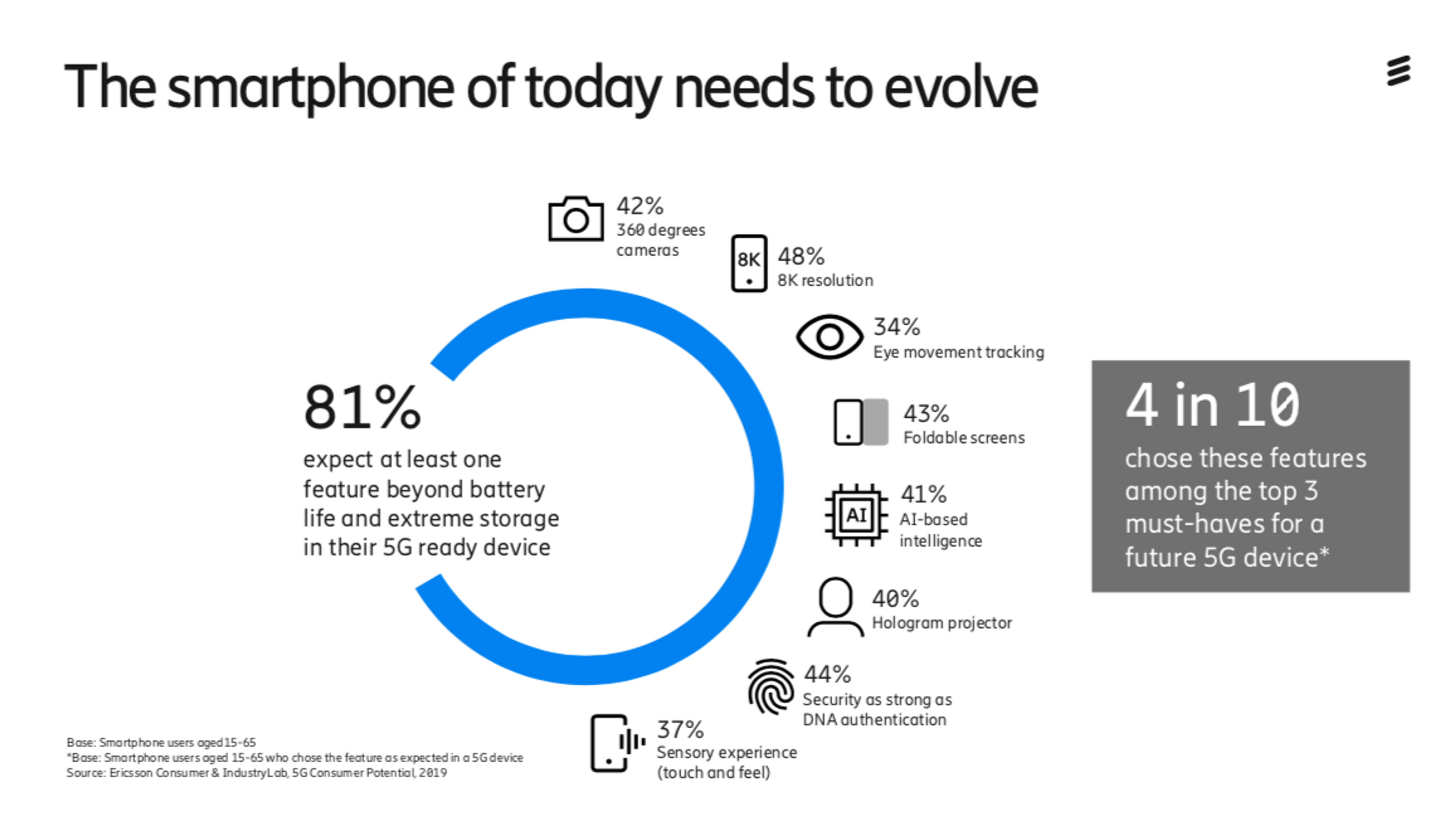
Yep, you read that right, the public associates “DNA strength verification”, “Flexible phone screens”, and “Holographic displays” with 5G.
So what events will you be at in 2020?
When I first drafted this article, I was pumped to write an exciting list of events that we were thrilled to be a part of. Sadly a lot has happened over the last few weeks.
While we've already been to Stockholm and Barcelona Video Tech meetups this year, along with HackSC, JSConf Hawaii and Code BEAM in SF, our once packed events calendar is suddenly looking barren. COVID-19 has forced many events throughout all industries to be postponed, canceled, or turned online only. In particular we’re really sad to see NAB be called off for the first time in its history. NAB is a mainstay of the video engineering industry, but we must admit, we are excited to see what NAB’s first online-only event will look like.
Our plan for 2020 was to continue to attend many of the same video industry events that we attended last year, but also to expand into a more diverse group of general developer conferences, including but not limited to events in the Python, Elixir, React, Go, and Ruby ecosystems. Why? Mux's aim isn't just to make video streaming more accessible to video developers, it's to make video streaming more accessible to every developer.
If you’re organising an event that is affected, we’d love to help in any way we can. We just launched a scheme where we’ll provide support and streaming services to meetups and conferences who chose to go online. You can read more about the scheme here.
I'm still hoping to get out to more of the European Video Tech Meetups later this year, hopefully at least Paris, but hopefully also some of the newer meetups in Milan, Helsinki, Madrid, and Vienna too.
For me personally however, the most disappointing event to cancel was Demuxed Europe.
Demuxed Europe
Demuxed Europe was planned to be our first breakout event for Demuxed, bringing the best of Demuxed to London with a European twist, including talks from both the giants of the video streaming industry and European broadcasters alike.
Sadly however, we made the decision to cancel Demuxed Europe in light of the COVID-19 outbreak in London. You can find out more about the reasoning behind our decision here on the Demuxed Europe website.
We do this with an extremely heavy heart, but Demuxed Europe will be back in 2021, and it’s going to be bigger, better, and (hopefully) pandemic free. In the meantime we’ll hopefully be seeing many of you in San Francisco for Demuxed 2020.
Whatever event we see you at later this or next year, be it online, or IRL, we can’t wait!

